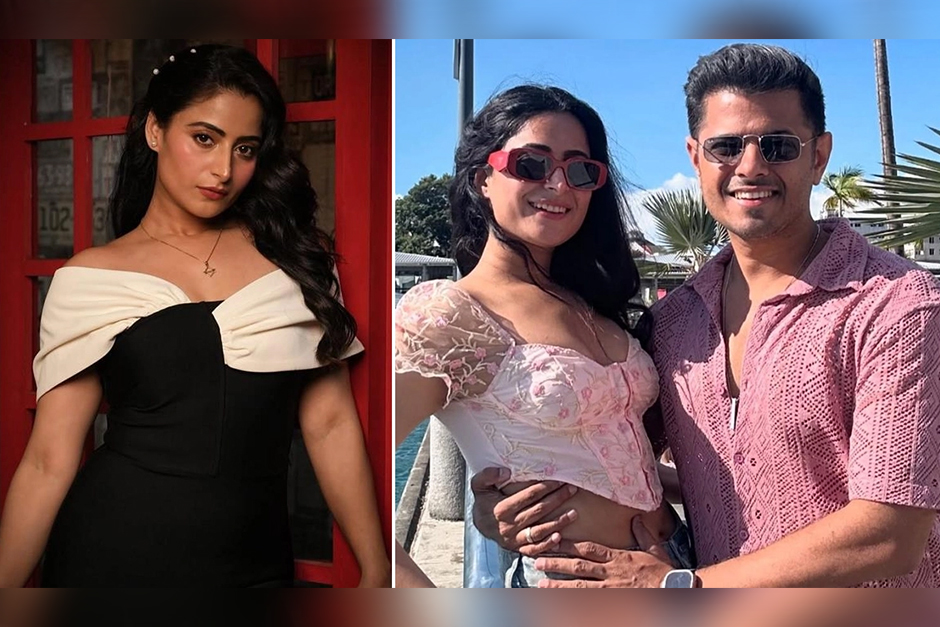The lives of public figures, particularly those in the Indian television industry, often play out under the relentless gaze of millions. Fans, while showering immense love, can sometimes cross the line, blurring the boundaries between a celebrity’s on-screen persona and their real-life identity. This phenomenon has recently come to the fore with popular actress Aishwarya Sharma, widely known for her role in Star Plus’s Ghum Hai Kisikey Pyaar Meiin, who has openly addressed the constant trolling she faces, especially amid recent divorce rumours with her husband and co-star, Neil Bhatt.
The Genesis of Online Scrutiny
Aishwarya Sharma and Neil Bhatt’s love story blossomed on the sets of their hit daily soap, Ghum Hai Kisikey Pyaar Meiin. Their on-screen chemistry, though complex and often controversial due to the show’s love triangle plot, translated into a real-life romance that culminated in their marriage in November 2021. For many fans, their relationship was a celebrated event, a testament to love finding its way even amidst the drama of a television set. However, for Aishwarya, the public’s perception of her character, Pakhi, a woman often portrayed with grey shades and manipulative tendencies, began to spill over into her personal life. This fusion of reel and real became the unfortunate catalyst for persistent online negativity.
The journey from engagement to marriage was accompanied by a steady stream of comments, many of which targeted Aishwarya personally. Viewers, deeply invested in the show’s narrative, found it challenging to separate the actress from her antagonist character. This emotional investment, while a sign of the show’s success, unfortunately manifested as unwarranted criticism and personal attacks directed at Aishwarya. The trolling, far from being a sporadic occurrence, became a constant shadow, questioning her choices, her relationship, and even her appearance.
Aishwarya Sharma’s Candid Revelation Amidst Rumours
In recent weeks, the social media buzz intensified with unsubstantiated rumours circulating about Aishwarya Sharma and Neil Bhatt’s impending divorce. While the couple has largely maintained a dignified silence, focusing on their work and personal lives, these rumours reignited the vitriolic commentary directed at Aishwarya. It was against this backdrop that the actress decided to break her silence, offering a poignant insight into her experience. In a candid interaction, Aishwarya revealed the long-standing nature of the online abuse, stating, “Ever since I got engaged, I’m the one who has been getting trolled. People troll me saying that I am not good enough for Neil.”
This statement encapsulates the profound pressure and emotional toll faced by celebrities when their personal milestones are met with public condemnation rather than celebration. Her words highlight a disturbing trend where personal relationships of public figures are subjected to intense scrutiny, often fueled by fictional narratives. The idea that she is “not good enough” for her husband, a sentiment frequently echoed by trolls, speaks volumes about the possessive and judgmental nature of some online communities.
The Blurred Lines Between Reel and Real
The Indian television landscape often creates an intense bond between viewers and their beloved characters. For actors like Aishwarya, who portray complex roles over extended periods, the distinction between their professional persona and private identity can become incredibly thin in the public eye. The emotional investment of fans, while largely positive, can turn toxic when they feel ownership over an actor’s personal life or express strong disapproval of their on-screen choices by attacking their real self. This phenomenon is particularly acute for female actors, who frequently bear the brunt of online misogyny and character assassination based on fictional roles.
Aishwarya’s experience serves as a stark reminder of the challenges actors face in navigating this digital age. Despite Neil Bhatt often standing by her and publicly expressing his love and support, the online vitriol persists, demonstrating the deep-seated nature of such biases. It underscores the urgent need for a more empathetic and responsible approach to online interactions, where individuals are judged for their character and actions, not for the roles they play or the baseless rumours that circulate about their personal lives.
In conclusion, Aishwarya Sharma’s decision to speak out is not just a personal plea but a broader call for understanding and respect. It highlights the often-unseen struggles of those in the public eye, constantly battling perceptions shaped by fiction and amplified by the anonymity of the internet. As consumers of media, there’s a collective responsibility to remember that behind every character is a real person deserving of privacy and dignity, irrespective of their on-screen portrayal or the gossip that swirls around them.




